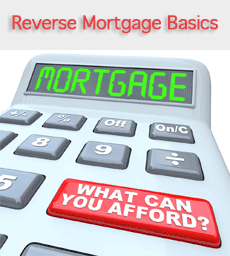 Reverse mortgages are forms of equity release whereby homeowners over 62 years of age can utilize the equity in their home. They must be using their home as their primary residence. Also, the mortgage still owed, if any, must be sufficiently low to be covered by the proceeds of the reverse mortgage. It is a form of equity release.
Reverse mortgages are forms of equity release whereby homeowners over 62 years of age can utilize the equity in their home. They must be using their home as their primary residence. Also, the mortgage still owed, if any, must be sufficiently low to be covered by the proceeds of the reverse mortgage. It is a form of equity release.
No credit checks are necessary, but bankrupts (pending or current) will have to seek court approval to proceed. This is to make sure that you are fully aware of the implications of such mortgages. On completing the course you will receive a certificate. This must be presented before you can continue with your application.
The amount you can borrow on reverse mortgages (it is a form of loan) depends on the value of your home (or the permitted county lending limit if that is smaller) your age and the interest rate at the time are also relevant factors. The loan can take the form of a lump cash sum, monthly payments to your bank account or a line of credit to be used when required. The proceeds of a reverse mortgage are tax free.
Interest Rate for Reverse Mortgages
The interest rate for most reverse mortgages is variable. These are generally based on the Treasury Securities rate used for the HECM program. This is the Home Equity Conversion Mortgage program which is the only reverse mortgage program insured by the FHA. The Treasury securities rate used for this is known as the Treasury one-year T-Bill.
Irrespective of how the rates are calculated, you should contact your mortgage advisor if you are considering a reverse mortgage. There might be alternative methods of freeing up your equity, although a reverse mortgage is generally considered one of the best ways to do this.
How a Reverse Mortgage Works
When you have a regular mortgage, you will pay the lender a certain sum each month. This is amortized so that you make the same monthly payment over the whole term of the mortgage. Your payments are interest-rich to begin with, with the final payments being mainly principal repayments.
With a reverse mortgage, you have no need to make any payments. You can do so if you wish without pre-payment penalties. The title remains in your name, but if you sell your home, then the amount of the reverse mortgage still due becomes payable immediately and is deducted from the selling price of your home.
You can take a reverse mortgage with a line of credit. That is a form of revolving loan so that any mortgage payments you continue to pay is deducted from what you owe at the time. Any interest accruing on your reverse mortgage advance is added to the amount still owed on the mortgage.
What if Your Home Appreciates in Value?
If the value of your hone appreciates during the period of the reverse mortgage you take a second such mortgage. You can do this up to the level of the new value of your home. You continue to pay interest on both reverse mortgages. The company issuing the mortgage benefits through the interest and by receiving the capital back once your home changes hands – or on your death.
Reverse mortgages offer a way for people to use the equity on their homes if they have no desire or need to leave its value to others on their death. In many cases reverse mortgage are repaid prior to that. Such mortgages are not recommended if you have a desire to leave your home to your heirs. Otherwise, it is a means of making use of your equity while remaining in your home for your lifetime.


About The Author: Karengustin
More posts by karengustin